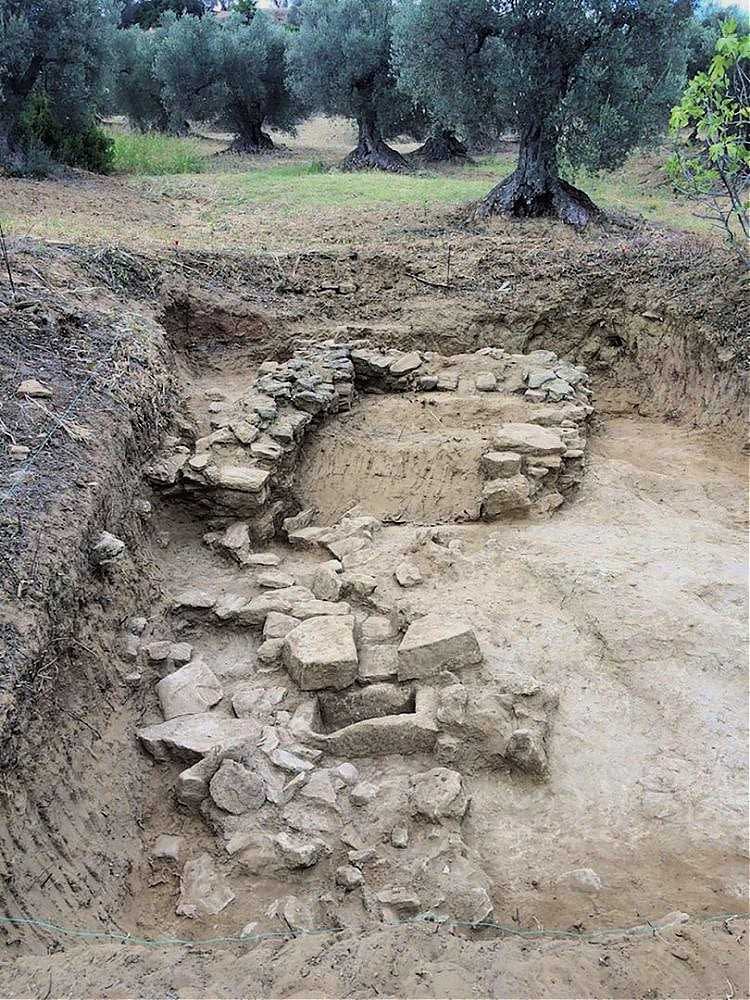Remains of 2,500-Year-Old Mill Discovered in Italy

An ancient olive oil mill dating to the 4th century B.C. has been uncovered during archeological excavations in the province of Matera.
Located in the Basilicata region in southern Italy, the archaeologists said that the finding is sensational due to both its structure and age.
On this 4th century B.C. pavement, some plant macro-fossils of Olea Europaea were found in excellent condition.
They believe it is the earliest olive oil mill found in Magna Graecia, a region that encompasses most of Italy’s southern coastline, where ancient Greek colonists arrived 3,500 years ago.
The discovery was made within the excavating site of Ferrandina, a town still renowned for its high-quality extra virgin olive oil.
See Also:Ancient Olive Oil Production Artifact Found in GethsemaneIts surroundings and archeological past are highly relevant for researchers searching for the remains of ancient communities that settled in the area as early as the Iron Age.
In a press release, scientists from the University of Basilicata and the regional archeological agency explained that the site’s primary evidence includes an olive oil receptacle built with dry stone walls.
From there, several channels branch off and follow the natural slope bringing them to stone basins, which archeologists believe were used for the purification of the olive oil.
According to the researchers, horizontal beams with mobile counterweights formed the ancient press, under which a rounded support basin was placed to collect the olive pulp.

Lucano Agency for Development and Innovation in Agriculture
The current excavations were undertaken several years ago after archeologists found two pressing bases, currently in the museum of Metaponto, a nearby city. The researchers also found traces of a press with a wooden frame on the clay floor.
“To the east and south of the oil cell, a large open space was found, with a well-compacted clay walking surface intended for the processing of olives,” the archaeologists said. “There, on this 4th century B.C. pavement, some plant macro-fossils of Olea europaea were found in excellent condition.”
Paleobotany experts will analyze the olives’ carpological remains to better understand their origin and shed some light on the local ancient cultivar, Majatica, the most commonly grown variety in Ferrandina.
See Also:New Insights Into the World’s Oldest Bottle of Olive OilThe excavations will continue since a whole settlement is believed to have arisen in the same location as the olive oil mill, with residential quarters and production facilities. Researchers will also look for the areas dedicated to the pressing and storage of the olives.
“The discovery witnesses the ancient inclination for olive growing in the Ferrandina territory, which is renowned for its high-quality olive oil,” said Lucrezia Digilio and Paolo Colonna from Donne in Campo and the organization of the Lucano olive oil producers, Oprol, respectively.
They believe that the archeologists’ work “further strengthens PGI Olio Lucano, a brand that goes beyond the quality and also recognizes history, tradition and passion of the olive growers on our territory.”
Growers and experts are now waiting for the results of the paleobotany analysis on the uncovered olive remains.
“As it is well-known, the most grown cultivar in Ferrandina is the Majatica, whose dedicated groves extend on 4,250 hectares,” Digilio and Colonna said. “This discovery encourages us to continue building the inter-regional olive oil production chain, an initiative that is helping local growers to restructure their businesses and be more competitive on the market.”








